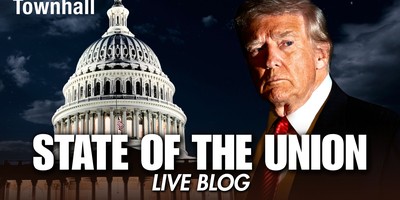When Washington Post fact-checker Glen Kessler awarded Marco Rubio 'Two Pinocchios' for his CNBC debate assessment that the recent Benghazi hearings had exposed Hillary Clinton
Advertisement
Tyrone Woods' father (who took notes about their meeting): "I gave Hillary a hug and shook her hand. And she said we are going to have the film maker arrested who was responsible for the death of my son...'She said -- the filmmaker who was responsible for the death of your son'..."
Sean Smith's mother: "She's absolutely lying. She told me something entirely different at the casket ceremony. She said it was because of the video."
Sean Smith's uncle: "Mrs. Clinton really has a problem embracing the truth."
Glen Doherty's sister: "When I think back now to that day and what she knew, it shows me a lot about her character that she would choose in that moment to basically perpetuate what she knew was untrue."
Recommended
Advertisement
Also keep in mind that Clinton invoked the video in her public remarks that day, though she didn't link it directly to Benghazi. "We’ve seen rage and violence directed at American embassies over an awful Internet video that we had nothing to do with," she said. Questions: Would Hillary Clinton's presidential campaign have us believe that all of these people are lying? And for what reason were these remarkably consistent memories deemed less compelling or convincing than a rote denial issued by a notably scandal-plagued candidate for public office? Clinton's potential motive for seeking to mold the historical record is plainly obvious. What motive do the four people quoted above share that would compel them to concoct an untrue story? Perhaps they loathe Mrs. Clinton so much that they're willing to coordinate a slander -- connected to their loved ones' deaths, mind you -- that paints her in a negative light. Or perhaps the Clinton campaign is engaged in politically-motivated distortions. Which explanation sounds more plausible? As Mark Hemingway writes in his detailed response to Kessler's analysis, the gap between the relatives' public comments and the campaign's denial, "seems like a pretty good indicator that Clinton and her campaign aren't inclined to be honest here." Indeed. As for the broader issue of whether Hillary Clinton intentionally lied about Benghazi, the recent hearings revealed two messages she sent on September 11th and 12th, several days
Advertisement
Stood in front of 4 flag draped coffins and blamed YouTube pic.twitter.com/NoUZhytQTN
— Stephen Miller (@redsteeze) October 22, 2015"We know that the lack in Libya had nothing to do with the film. It was a planned attack -- not a protest." Emphasis mine. This is neither ambiguous nor colored by the "fog of war." It was a real-time conclusion bolstered by multiple American officials' subsequent statements and sworn testimony: "The former acting CIA chief said the video protest fable did not originate from the intelligence community. David Petraeus testified that the US government knew Benghazi was a premeditated attack 'almost immediately.' State Department documents confirm this. And Amb. Chris Stevens' second-in-command testified that the obscure online film was a 'non event' on the ground in Libya." Yet on September 14, a top White House aide circulated a messaging memo underscoring the political importance of casting the violent events as "rooted in an Internet video, and not a broader failure of policy." That same day, Hillary blamed that very "non event" video for the bloodshed, according to multiple grieving family members present at the time. And on September 15, Susan Rice
Advertisement

























Join the conversation as a VIP Member